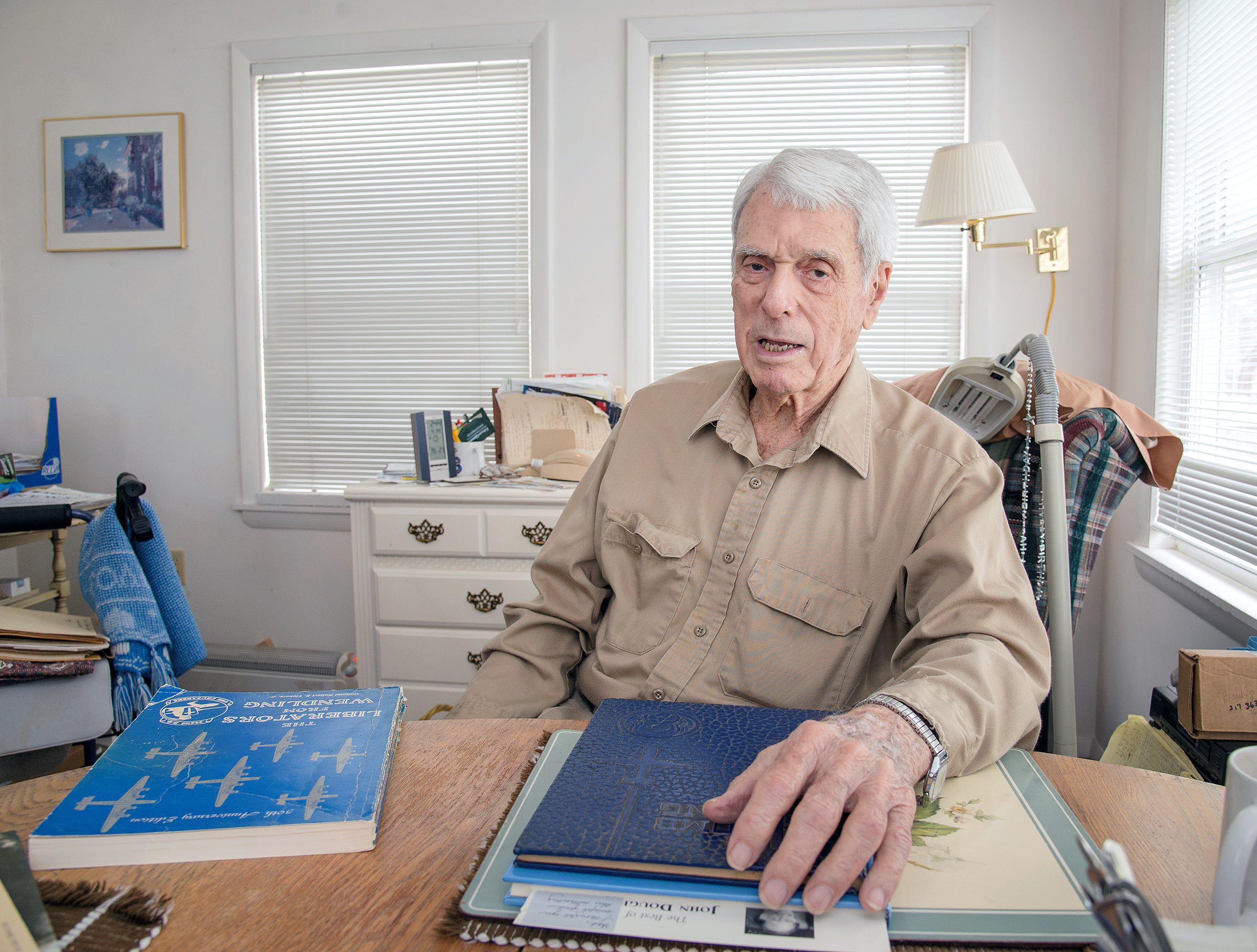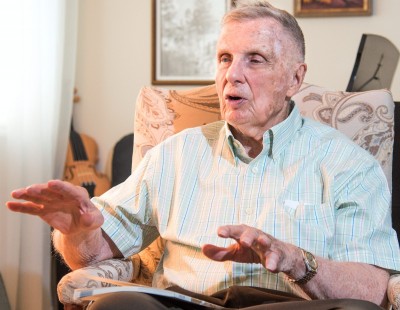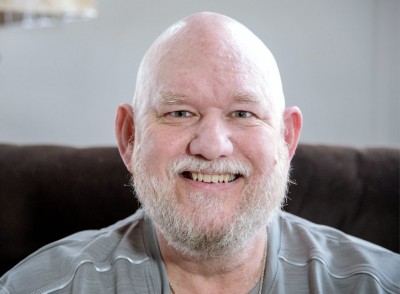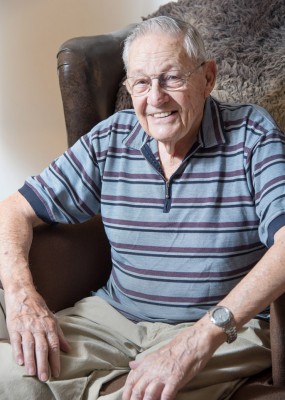Robert Tuchel
By Paul Wood

Photo By Rick Danzl/The News-Gazette
CHAMPAIGN — “I got shot up a lot, but I never got shot down,” says Capt. Robert Tuchel, who flew 35 missions piloting a B-24 Liberator bomber over France and Germany.
He had graduated from Minier High near Bloomington in 1939. He was a University of Illinois student and already married to Wanda when he enlisted in the Army Air Forces.
After being commissioned, he was sent to B-24 flying school at Tarrant Field Airdrome in Fort Worth, Texas.
His missions ended with the Battle of the Bulge in December 1945, when he interrupted German supply lines during their surprise counter-offensive.
In the 34 missions before that, anti-aircraft fire and fighter planes chewed up his formation, at one point hitting the bomb bay and nose turret of his bomber.
When he saw the nose-turret gunner’s hat fly past the windshield, he thought the man’s head had been blown off. (He was OK).
A second hit struck the bomb bay and took out the hydraulic system and control cables of the main flight controls. But even with the controls destroyed, Tuchel, now 93, landed his B-24 safely on an English landing strip after a long ordeal.
Using the auto-pilot, Tuchel had managed to turn back to England, but a mandatory blackout in the country meant no ground lights were visible for landing.
He was able to find an exceptionally long auxiliary B-17 landing strip to bounce down on, even without flaps and brakes.
The runway lights turned on just at the last moment for Tuchel’s B-24.
Other crew members cranked down the landing gear and there was some slowing from parachute power. Two parachutes were thrown out, without the pilot being informed, which meant the plane had additional problems staying in a straight line.
The landing used all 10,000 feet of runway; no one was hurt.
After the crash, Tuchel got a call that the plane was ready to fly again.
“It was like driving a car with a sprung frame,” he says. “You do the things you are trained to do.”
It was a long way from Minier to Wendling, England, via Labrador, to fly those missions, a job he loved.
“It was a time I will never forget,” he says.
Tuchel left with the rank of captain. He received the Air Medal and Clusters, the Distinguished Flying Cross and other service medals.
There was a long military tradition in his family. He even had a Civil War veteran in his family whom he met.
According to his newspaper stories from the time, Anson Baker was born March 9, 1850, and was just past 14 when he answered Abraham Lincoln’s last call for recruits.
Baker was mustered into Company G of the 132nd Illinois Volunteer Infantry in May 1864. With other green recruits, he was sent to Kentucky, where he skirmished with Confederate army guerrillas.
He died in 1948 in Minnesota.
“I knew him personally in St. Paul,” Tuchel says.
Tuchel’s father was in World War I; two of Tuchel’s sons also served. He has two other children.
After the war, Tuchel spent 35 years in the insurance business, then another 20 teaching insurance classes at Parkland College.
He studied music — his mother was a trained pianist — and other courses at Parkland College and eventually earned a bachelor’s degree from Eastern Illinois University, decades after the war interrupted his studies in Urbana.
Do you know a veteran who could share a story about military service? Contact staff writer Paul Wood at pwood@news-gazette.com.
Read more stories from local veterans:
 William Hall
URBANA — Future University of Illinois Professor William Hall served on a Merchant Marine ship without a convoy in a Pac …
William Hall
URBANA — Future University of Illinois Professor William Hall served on a Merchant Marine ship without a convoy in a Pac …
 Steve Stanley
URBANA — Staff Sgt. Steve Stanley had top-secret clearance, and was assigned to a secure area from which tactical nuclea …
Steve Stanley
URBANA — Staff Sgt. Steve Stanley had top-secret clearance, and was assigned to a secure area from which tactical nuclea …
 Roy Charles
URBANA — As Marine Roy Charles fought his way across the Pacific, it became clearer and clearer that the tide was turnin …
Roy Charles
URBANA — As Marine Roy Charles fought his way across the Pacific, it became clearer and clearer that the tide was turnin …